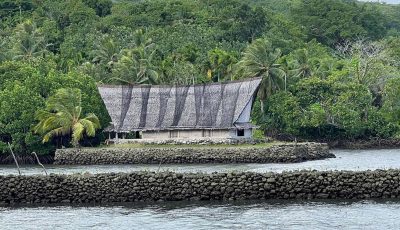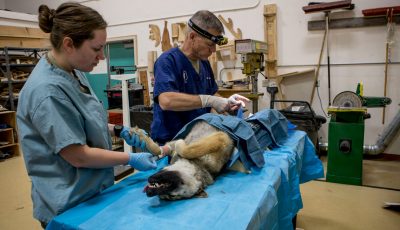The Earth as neighbor
“Who is thy neighbor?” is an old question that some of us grew up with. The Gospel of Luke in the Biblos relates the story of the Good Samaritan. Sunday school got us focused on the goody-goody part rather than the affront that a Samaritan assisting a Jew was two millennia ago.
Samaritans were non-Jews, of Assyrian descent, and for the practice of being ethnically of pure stock, Jews kept the DNA home. Samaritans were damaged goods. In India in the ’70s at the plateau of Maharashtra, people of the upper caste would not let their shadow cross that of an untouchable, Gandhi’s harijan, “child of Hari Vishnu” (though the term harijan is considered too condescending and no longer used) who were non-persons. An Indo-Aryan recently burned down a lower caste hut with two children under 10 as casualties.
So the gospel story of the Good Samaritan was one that confronted Jews’ disdain of anyone other than their covenanted race, an “it” to be either used or shunned. In our time, the question of who is my neighbor is not a question of locating the feel-good goody-goody-good shoes. It is a real question. Which object have we treated as an “it” rather than a subject that we relate to, rely and depend on to sustain our survival? Dang right, planet Earth.
A UN conference on climate change gathers in Paris starting today until Dec. 11 with a Summit of the Nations on the 5th. Doomsayers and naysayers are plenty, treating the planet as an object that goes with the European perspective, the version of Christianity that we inherited from when Padre Vittores brought European ethos into our Maria Ana shores, the earth as a created thing.
It is only in recent times that the Earth took on an organic quality; “it” took a paradigm shift as an organism that lives on its own processes, and can also die, though that is an unlikely option in the immediate future. Oh, sure, we can kill all the living organisms, though I am sure some bacteria can survive, but the planet will survive.
Thanksgiving Day was a festival in November, a recognition of the Earth’s bounty. This symbiosis between human bodies and the Earth is recognized by all cultures, but of late, the advantage has been one-sided as the human exploitation has been detrimental to the health of the planet.
Not too long ago, in a river in Harbin, Heilongjiang in China, a company dumped chemicals that rendered the river a mess for two years until authorities got around to cleaning it up. Of course, expediency—if not corruption in public offices worldwide—also meant that reports of cleanups could not be totally relied on.
That the human drive for profit has made human enterprises suspect at the start rather than “trust but verify” renders any effort to be ecologically friendly a matter of public relations rather than simply a trustworthy act. That is what makes the Earth as my neighbor, with everything on it under my guardianship, so appropriate as the Good Samaritan story of our time.
I am a voice in the wilderness decrying automatic identification of national and regional identities based on the colonial definitions of a previous era. Born and raised in the Philippines, I became clear that the mountain folks in the Caraballo, Sierra Madre and Cordillera mountains had nothing in common with the Indo-Malay plains folks who migrated later as extended families in their boats (barangay), the name we adopted for the country’s smallest political settlement unit. We are the Philippines by virtue of the colonial definition of Spain belonging to Felipe II, Anglicized as Phillip, that the Itnegs took exception to for they have nothing in common to the Warays in Samar and Leyte.
To be a nation is a choice. The “unity” of the geophysical nature of the archipelago was enough to make us one. But that is a choice, not an inheritance from Spain. That is not exclusive of other ethnic groups, given that our Malay heritage originated from Indo-Malay strains, the same way as our remaining Austronesian kin out in the hinterlands relates to the rest of the Austronesians in the Pacific, or the Sinosphere blood out of the Far East Asian coast to Northern Luzon, and now, the mestizos who mingle European and U.S. stocks with the natives.
The R.P. and U.S. do not hold my major political allegiance. I am a creature of earthrise consciousness, an avid laborer in the earthbound commitment field. I am an earthling with a deep sense of global citizenship.
The Earth has natural processes, how it regulates water to parcel the use of land. It has wind and ocean currents, tornadoes and hurricanes. Most importantly, it has humans in a process of continuing evolution. The planet is evolving in the same way humans are, and we are smart to understand that our individual destinies, not to mention that of the human race, are dependent on the health and wellbeing of the planet itself. If you ask me again who my neighbor is, I do not equivocate: the planet Earth and all that is in it. Period.



























